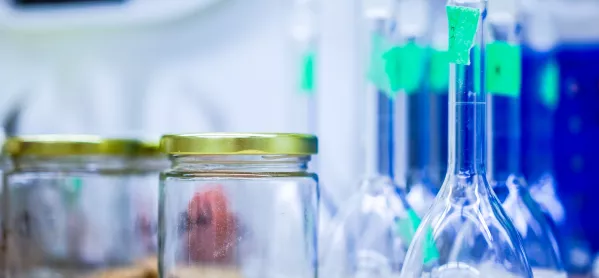High-stakes exams are preventing schools from carrying out enough practical science activities, a new study has claimed.
Today’s report, written by the president of the Royal Society for Chemistry, Sir John Holman, says this was despite schools in England being well equipped by international standards.
The document, Good Practical Science, for the Gatsby Foundation, outlines 10 benchmarks schools can use to judge whether they are delivering world-class practical science.
A survey completed by almost 400 secondary schools in England - about 10 per cent of the total - found that none met more than seven of the measures, which include students experiencing a practical activity in at least half of their science lessons, and teachers having specialist training the science subject they teach.
More than a third of schools - 36 per cent - did not meet any of the standards.
The report says: “Meeting all the criteria for all the benchmarks is very demanding, and the survey confirms that most schools are well short of achieving world-class practical science measured in this way.”
However, it adds that when the benchmarks were relaxed, while retaining their essence, 92 per cent of schools met at least one, with the proportion meeting at least half rising from 6 per cent to 23 per cent.
The report raises concerns about the frequency of practical science work, particularly among older pupils.
It finds that 68 per cent of science lessons in key stage 3 included a practical activity, but in key stage 4, this dropped to 33 per cent, 55 per cent and 47 per cent in biology, chemistry and physics respectively.
The figures are lower still in post-16 science.
The report says: “In the light of our judgement that by international standards, English schools are well provided with laboratory facilities, it is disappointing that many schools are not making full use of them.”
Sir John told Tes: “We have got good labs, relatively, by international standards, and we have got technicians. We are well geared up to do it.
“In view of that, we are perhaps not making full use of those facilities, in particular, not doing practical work as frequently as we saw in some of the world-leading countries.”
He blamed high-stakes exams in key stage 4 and key stage 5 for pupils doing less practical work as they got older.
“In this country, we have intensive preparation for examinations in those years, and preparation for written examinations can put pressure on the time available for doing practical work,” he added.
The report recommends the government review accountability measures, compared with other nations, “to assess how they could give teachers more autonomy and freedom to innovate in the way they teach, particularly in the case of practical science”.
A Department for Education spokesperson said: “We are already supporting schools to achieve the benchmarks set out in the report by investing £12.1 million in the national network of Science Learning Partnerships to improve the quality of science teaching, including practical work.
“Additionally, the curriculum and qualifications have been reformed to make them more rigorous and better prepare students for the next stage of their education. We welcome Gatsby’s commitment to improving practical science.”




